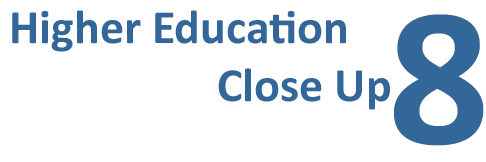From the quantitative to the qualitative: Learning from student insights on Higher Education
Jo Armstrong, Ann-Marie Houghton, REAP: Researching Equity, Access and Participation, Department of Educational Research, Lancaster University
Abstract
This paper shows the value of close-up research in learning about education from the perspective of students. It draws on preliminary results from an evaluation of OFFA (Office for Fair Access) funded activities and, as such, a concern with social justice lies at its centre. Initial quantitative findings appear to reflect the ways education is increasingly becoming a ‘market’ and where individuals perceive a degree primarily as a means to an end, i.e. a job, rather than an end in itself. An online survey of first year undergraduates found the top three influences on choice of higher education institution were league tables, visits to an institution and teaching or general reputation of the institution. The key three reasons for entering higher education reported by respondents were ‘to enable me to get a good job’, ‘I want to study the particular subject/course’ and ‘it is part of my longer-term career plans’. Many responses to the open survey questions support these observations and suggest both the influence of metrics and an instrumental orientation. For example, remarks included ‘Most of my uni choices were driven by league tables’ and ‘To get a good job; get a well-paid job as soon as possible’. However, other comments implied that study was an end in itself and the more in-depth qualitative findings emerging from interviews and focus groups with students allow greater understanding of the ways individual trajectories shape motivation and the meaning attributed to education. Student accounts of their journey to university show, for instance, the importance of influences other than league tables (e.g. knowing someone studying at an institution) as well as revealing variation in making the transition to independent study (e.g. according to factors such as the extent to which individuals have confronted and overcome challenges in reaching higher education). Overall, the paper demonstrates the value of getting ‘closer up’ to look beyond the numbers and take into account the diversity of experience between and within groups over time. Evidence suggests individuals from disadvantaged backgrounds do not reap the same rewards in terms of earning potential but maybe derive as much, if not more, in terms of fulfilment and satisfaction… While not fair or equal this perhaps makes the truth more bearable.
Keywords
Inequality; student journey; disadvantage; transition; motivation; orientation; meaning.
Conference Organisers
Paul Trowler
Lancaster University, UK
Alice Jesmont
Lancaster University, UK
Malcolm Tight
Lancaster University, UK
Paul Ashwin
Lancaster University, UK
Murray Saunders
Lancaster University, UK
Chrissie Boughey
Rhodes University, South Africa
Suellen Shay
University of Cape Town, SA

